This isn’t about an official ‘Twitter Files’ report, but it is very similar. Rebel News, a conservative-leaning, pro-free-expression news platform in Canada has obtained documents showing how the CBC used its money and cozy relationships with the Canadian government to try to force Twitter to censor its critics.
You will recall that Elon Musk labelled the CBC as 69% government funded (heh)—so that would be public money that they were threatening to withhold.
Seriously, the report is only part of the show and is worth watching in its entirety:
THE EZRA LEVANT SHOW | CENSORSHIP SCANDAL
Internal documents show head of CBC state broadcaster demanding Twitter censor users, or face punitive regulation from Trudeau.
FULL REPORT & DOCUMENTS: https://t.co/8tlv9c6tBY pic.twitter.com/ti8rYs4wPD
— Rebel News (@RebelNewsOnline) May 4, 2023
The thread also posts many of the documents:
BLACKMAIL: Documents show the head of Trudeau’s CBC state broadcaster told Twitter it must censor tweets or Trudeau would bring in laws to force them to do so
FULL REPORT & DOCUMENTS: https://t.co/8tlv9c6tBY pic.twitter.com/Ot7ArnUIas
— Rebel News (@RebelNewsOnline) May 4, 2023
CBC President pushes Twitter censorship: Read the shocking internal documents
FULL REPORT & DOCUMENTS: https://t.co/8tlv9c6tBY pic.twitter.com/uYAwvI9DAv
— Rebel News (@RebelNewsOnline) May 4, 2023
— Rebel News (@RebelNewsOnline) May 4, 2023
Indeed, Twitter Files veteran Matt Taibbi lent a helping hand:
FYI @rebelnewsonline https://t.co/GW43t4ZJfk pic.twitter.com/slYVXiVNPq
— Matt Taibbi (@mtaibbi) May 4, 2023
The reactions were swift:
@CBCTheNational is an organization that completely betrayed its mandate.
It used to be the pride of Canadians & I am appalled to see this. This didn’t happen suddenly, it all started when they removed everything remotely intellectual & went down in populism in the early 2000s.
— Xill (@Xil_llix) May 4, 2023
Falsedeau
— FaithInEthics (@EthicsFaith) May 4, 2023
Heh.
Doesn’t surprise me at all.
— Steph 🇨🇦🌿💨 (@Stephjd420) May 4, 2023
We aren’t surprised, either, but it is nice to have proof.
I’m very ashamed of the way that the @CBCNews MOB has handled Twitter! Twitter doesn’t BELONG to you🫵! @Twitter belongs to the VOICE OF GOD, which is the VOICE OF THE PEOPLE.
Vox populi vox dei @JustinTrudeau .. go look this saying up because evidently you don’t know what…
— Optima Subprima (@Pearl_E1981) May 4, 2023
Censor this Trudeau! 🖕U
— A🩸Eh🩸ron🩸Nolet (@Aaron_Nolet) May 4, 2023
Does Canada have a law/constitution that allows freedom of speech?
— Adam (@AdamEdw98870068) May 4, 2023
The Canadian Constitution says ‘Everyone has the following fundamental freedoms: freedom of thought, belief, opinion and expression, including freedom of the press and other media of communication.’ That sounds good enough but, in practice, their conception of freedom of expression is pinched compared to America’s.
Elon, gotta put the State tag back on and keep it there.
— Stoicum (@Stoicum1) May 4, 2023
We concur.
“Nice free speech platform you got there. It would be a shame if something were to happen to it…”
Levant on new docs exposing CBC’s Twitter censorship campaign. https://t.co/YVVr4SOyYO
— Wilf (@WilfIntheNight) May 4, 2023
The CBC is rife with hate. They hate anything and anyone who disagrees with the government narrative. Trudeau is the worst PM of Canada in the last 100 years. https://t.co/0FVQbKVxCj
— Sabre1ppc (@sabre1ppc) May 4, 2023
#FireCatherineTait #ShutDownCBC https://t.co/6lgXvFrMn4
— Kris Eriksen 🇨🇦 (@KEriksenV2) May 4, 2023
I think it's time for @elonmusk @mtaibbi to release the cbc Twitter files. https://t.co/cklO55ivVu
— Donna Beanland (@donna_beanland) May 4, 2023
They mentioned about five blanked out pages. I wonder if Twitter has a copy of them on their hard drive?
Notice also, there are also the constant calls on Twitter to censor itself, because government regulation would be worse. This is a common tactic for imposing censorship when the government might not get away with doing it directly. For instance, the Motion Picture Association of America didn’t want to institute a ratings system for American movies, but explicitly cited the fear that the government would try to regulate them as the reason why they instituted one. The same can be said for the Entertainment Software Ratings Board or ESRB which rates video games and the Comics Code Authority which stifled creativity in comic books for years. The latter contained absolute prohibitions that lasted for decades which included rules like:
Crimes shall never be presented in such a way as to create sympathy for the criminal, to promote distrust of the forces of law and justice, or to inspire others with a desire to imitate criminals.
Policemen, judges, Government officials and respected institutions shall never be presented in such a way as to create disrespect for established authority.
Special precautions to avoid references to physical afflictions or deformities shall be taken.
Divorce shall not be treated humorously nor represented as desirable.
One might feel that these different ratings boards and even the content restrictions slapped on comic books are a good idea, but they should never be adopted facing down the barrel of government regulation. They should be adopted freely, with at most social and economic pressure from parents, not the government.
Further, these tactics are insidious. One might say, for instance, “if you are a game company, why not just fight any regulations?” The answer is that it costs money to have that fight, so even assuming they would win, they would be out the costs associated with litigation—and that assumes they would win. The Supreme Court has not always been very supportive of free speech in modern forms of communication. So, yes, self-regulation might be better, except when we consider the damage done to freedom of expression.
It’s also an answer to the David Frenchs of the world who pretend all this social media censorship we have seen in the last few years is just private action. Very often it is actually the product of government pressure.
Finally, readers with long memories will remember the name Ezra Levant from his own struggles with Canadian censorship:
Human rights panel dismisses complaint against Ezra Levant: The Alberta Human Rights Commission has dismi.. http://tinyurl.com/6cne3c
— CBC News (@CBCNews) August 7, 2008
The CBC almost sounds disappointed.
***
Editor’s Note: Do you enjoy Twitchy’s conservative reporting taking on the radical left and woke media? Support our work so that we can continue to bring you the truth. Join Twitchy VIP and use the promo code SAVEAMERICA to get 40% off your VIP membership!
















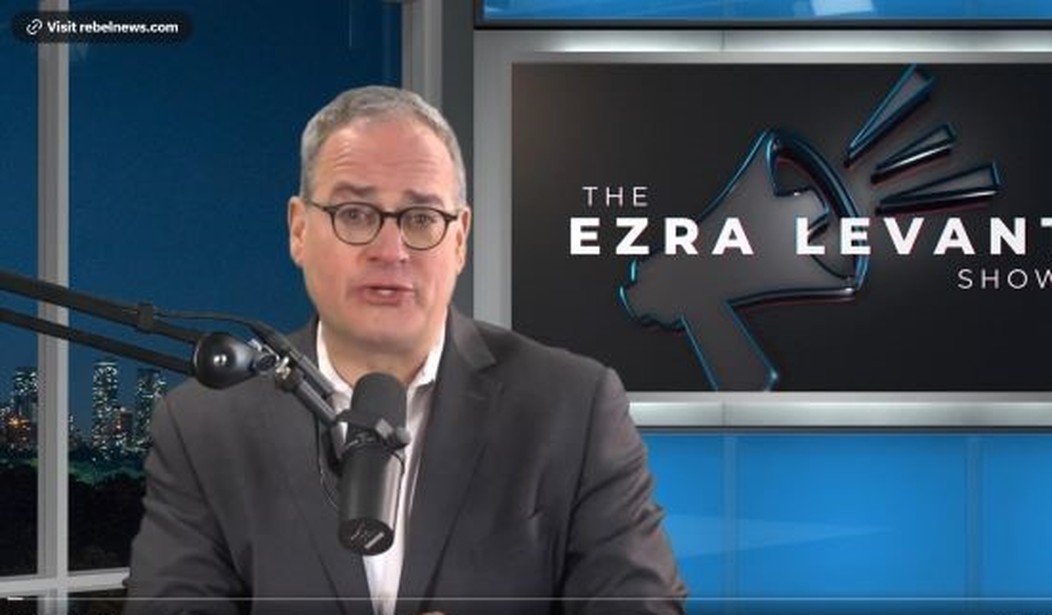

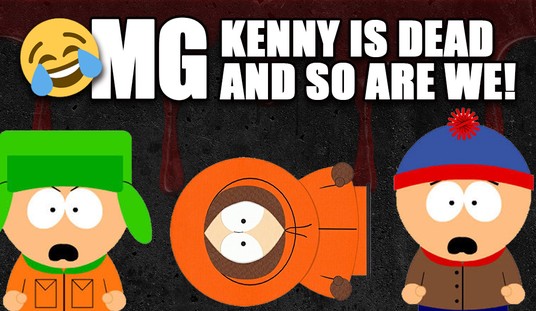
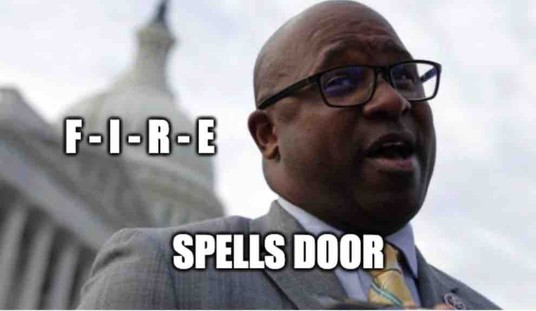
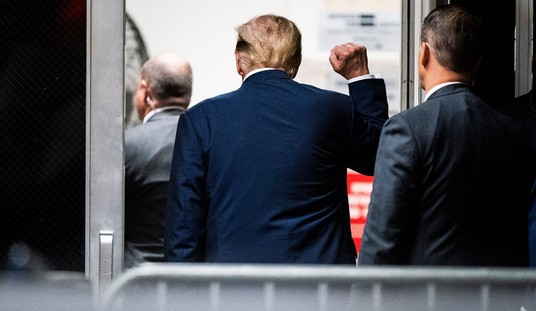
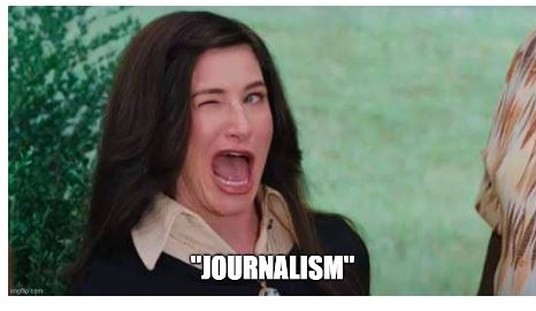


Join the conversation as a VIP Member